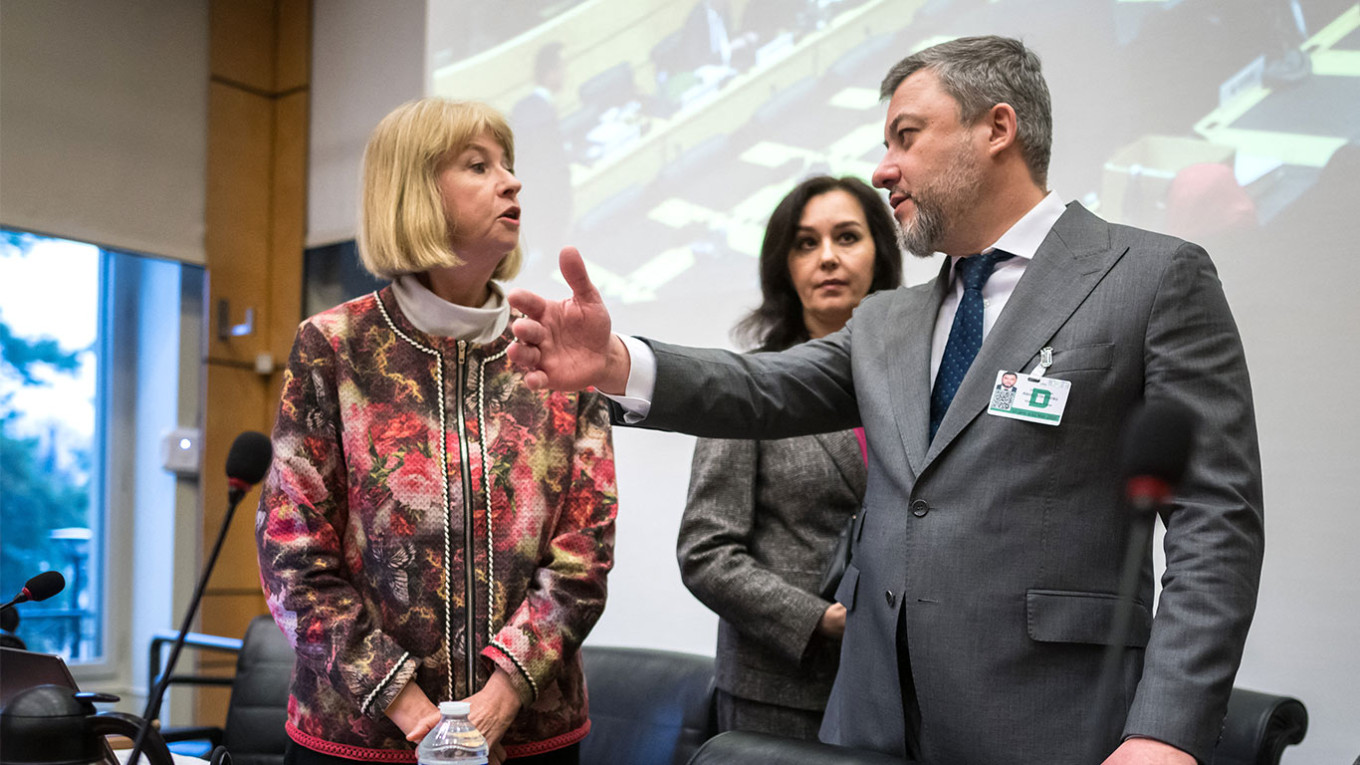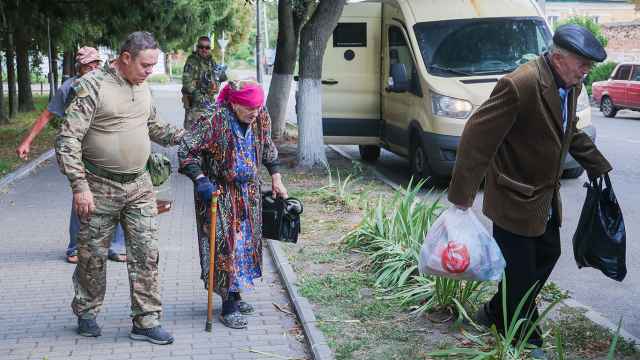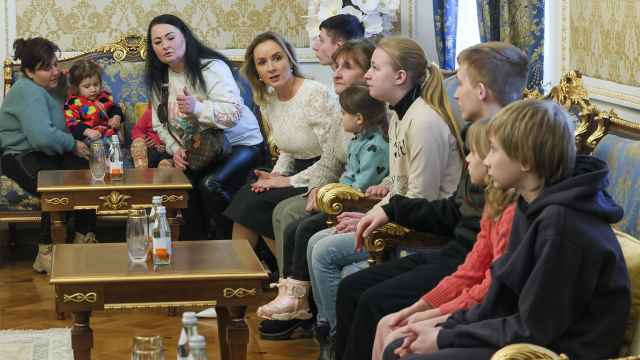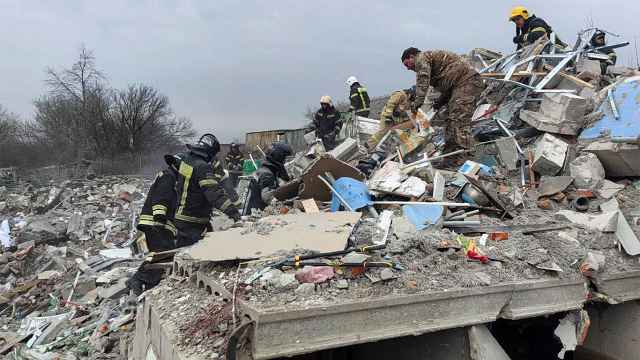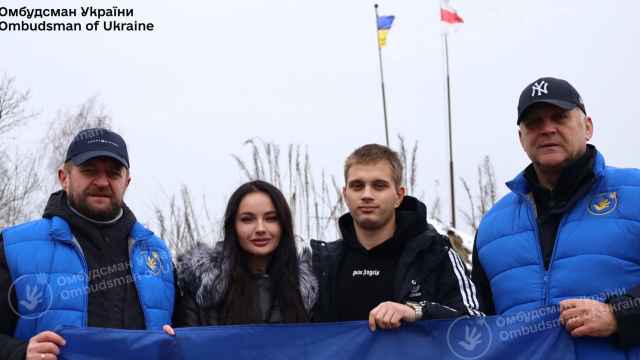Russia on Tuesday flatly rejected allegations that it had deported Ukrainian children since its invasion, but said at the UN that more than 700,000 had moved into its territory.
Ukraine has said that 20,000 children have been forced to move to Russia since the war erupted in February 2022. President Volodymyr Zelensky has called the action "a genocide."
The UN Committee on the Rights of the Child spent two days questioning Russia on its record, as part of a regular review that all countries have to undergo.
The independent experts pressed Russia on the deportation allegations, wanting to know how many children were affected, where they have been sent to, by whom and for what reasons. Ukraine says that only about 400 children have so far been repatriated.
The International Criminal Court issued a war crimes arrest warrant against Russian President Vladimir Putin in March 2023 accusing him of unlawfully deporting Ukrainian children.
The ICC has leveled similar charges against Maria Lvova-Belova, Russia's presidential commissioner for children's rights.
Russia is not a member of the ICC and insists the warrant against Putin is "void."
"Placements for evacuated children are arranged, first and foremost, at their request and with their consent," Russia told the UN committee in a written response in October last year.
And its representatives held a firm line on Tuesday.
"From February 2022, since then, the Russian Federation has not been involved in the deportation of citizens of Ukraine on the territory of the Russian Federation," Alexei Vovchenko, Russia's deputy minister of labor and social protection, told the panel.
"In total on our territory we have welcomed nearly 4.8 million Ukrainian citizens. More than 700,000 are children. So that is the number of children welcomed," he said.
"Most of the children came with their families or the guardians. They were placed in temporary shelters or with relatives."
But he indicated that checks were underway concerning the situation of "over 5,000 children" who are "currently being sought."
'Completely normal process'
As for the eastern regions of Donetsk and Luhansk, which the Kremlin says are now part of Russia, Vovchenko said around 2,000 residents of orphanages and boarding homes were "moved to the Russian Federation."
"Ukrainian authorities previous to this were not particularly concerned" about them, he added.
Vovchenko said he was unable to respond to committee requests concerning the transfer of children from orphanages in Crimea to Russia, asserting that "this is a completely normal process."
Moscow annexed the Crimean peninsula in 2014.
"It is entirely possible to adopt children, these children can change region," Vovchenko insisted.
He was also unable to answer the committee's questions on the number of Russian children who have lost their fathers in the fighting in Ukraine.
Denying accusations of "propaganda" echoed by the committee chair Ann Marie Skelton of South Africa, the Russian delegation spoke at length about the "patriotic education" issued to Russian students, notably through courses introduced shortly after the invasion of Ukraine.
Skelton said Moscow should present the committee's findings, which are set to be published on Feb. 8, to Russian children during such courses.
A Message from The Moscow Times:
Dear readers,
We are facing unprecedented challenges. Russia's Prosecutor General's Office has designated The Moscow Times as an "undesirable" organization, criminalizing our work and putting our staff at risk of prosecution. This follows our earlier unjust labeling as a "foreign agent."
These actions are direct attempts to silence independent journalism in Russia. The authorities claim our work "discredits the decisions of the Russian leadership." We see things differently: we strive to provide accurate, unbiased reporting on Russia.
We, the journalists of The Moscow Times, refuse to be silenced. But to continue our work, we need your help.
Your support, no matter how small, makes a world of difference. If you can, please support us monthly starting from just $2. It's quick to set up, and every contribution makes a significant impact.
By supporting The Moscow Times, you're defending open, independent journalism in the face of repression. Thank you for standing with us.
Remind me later.


